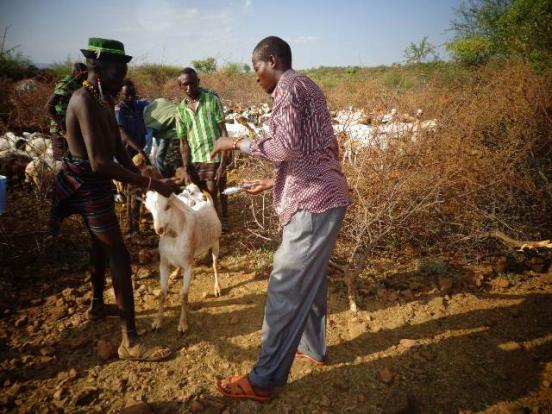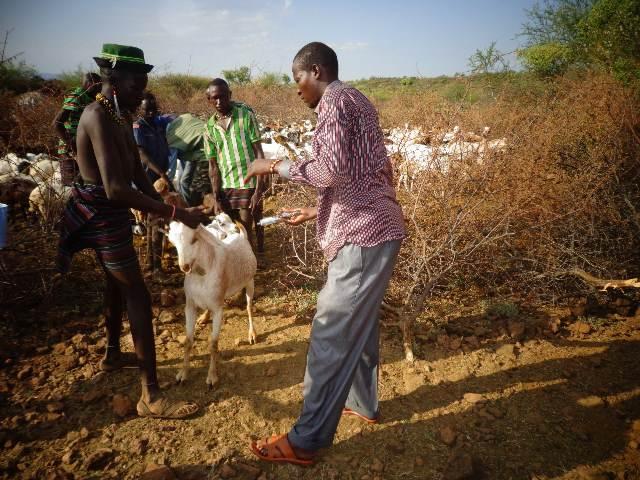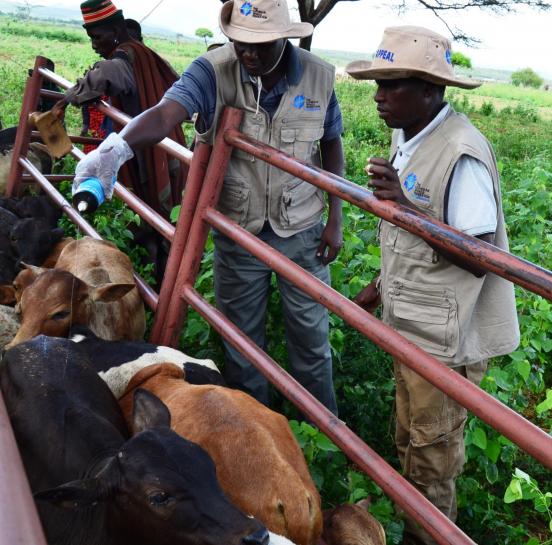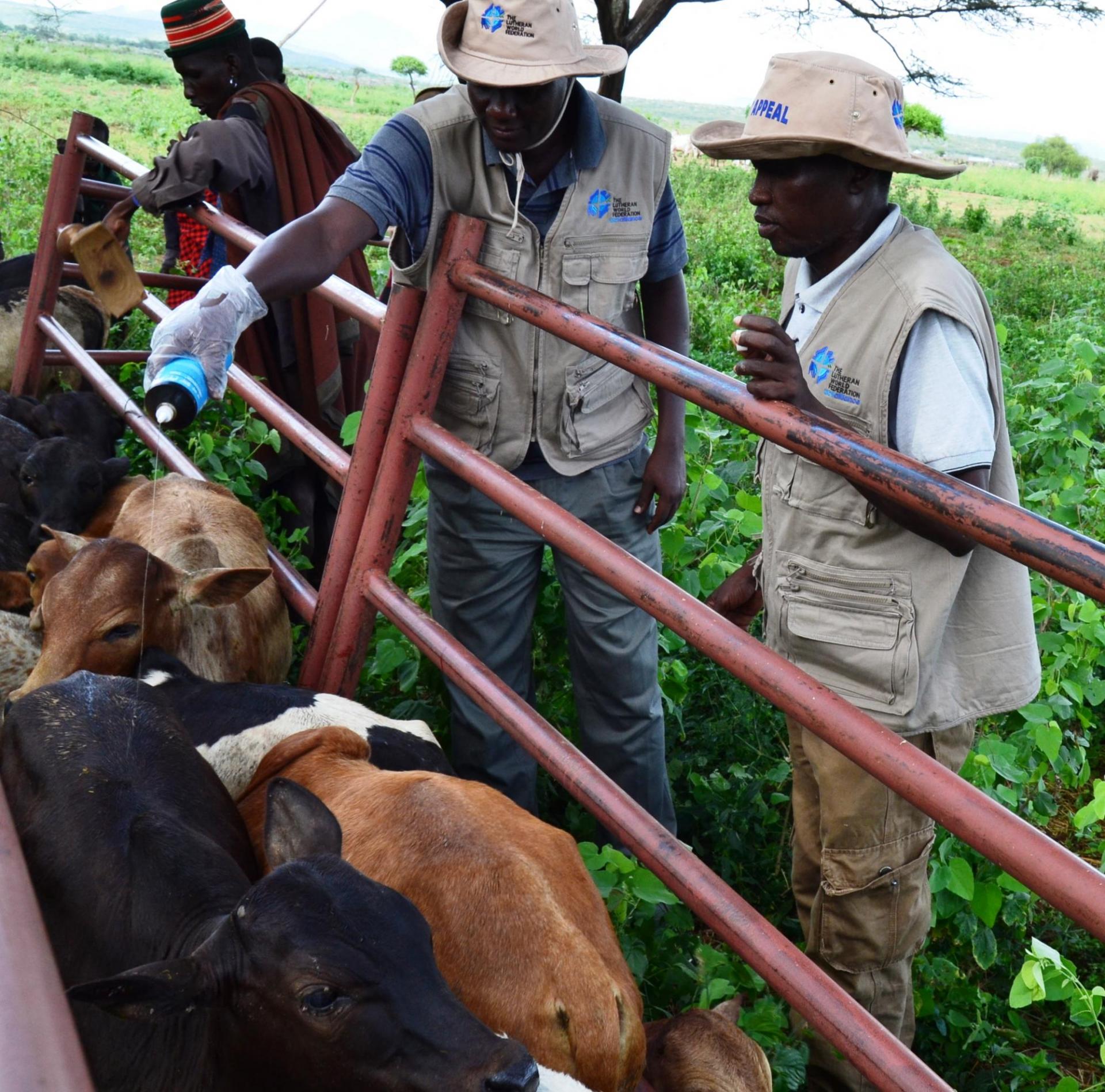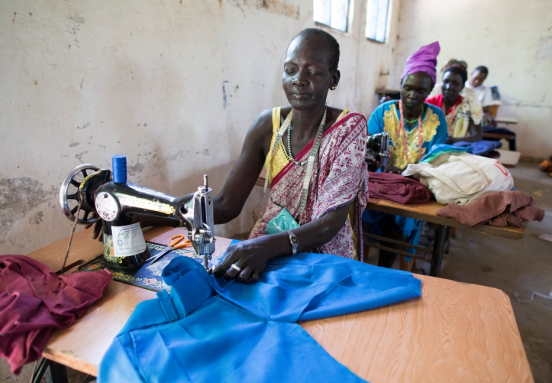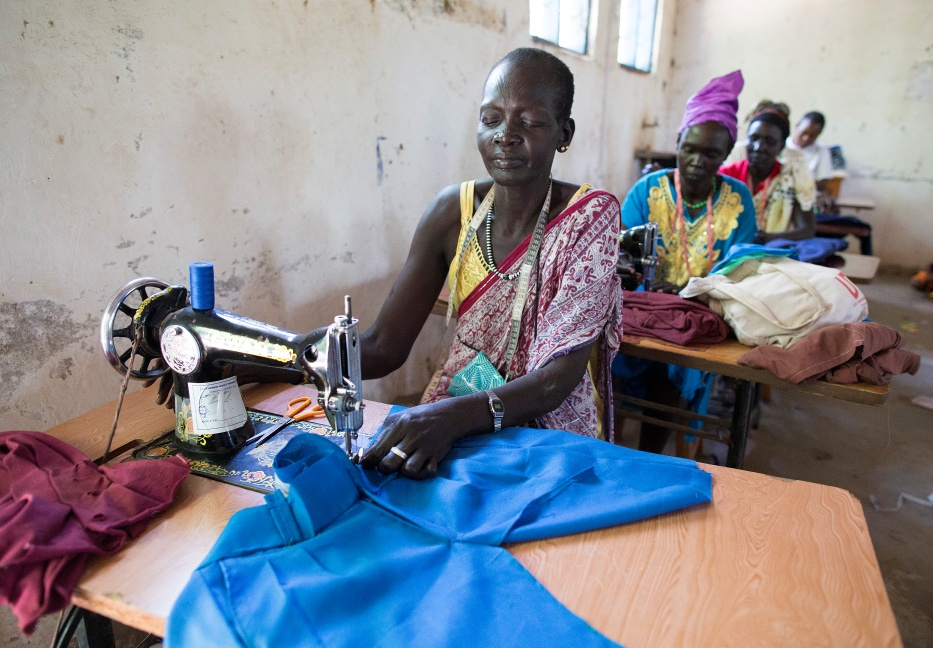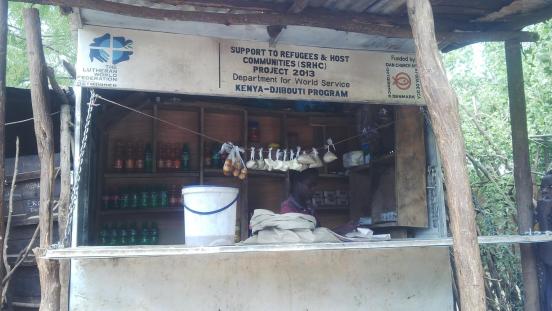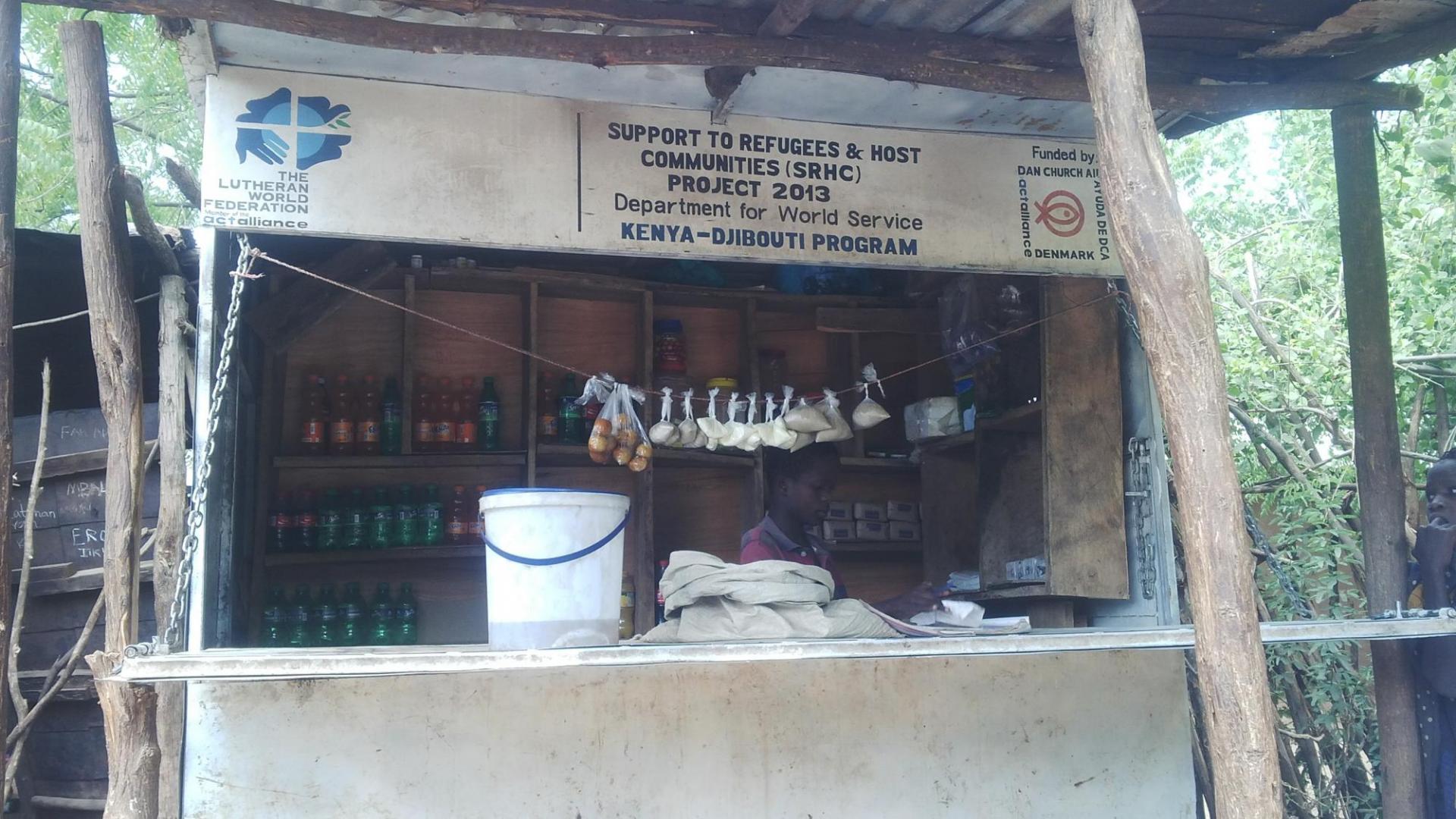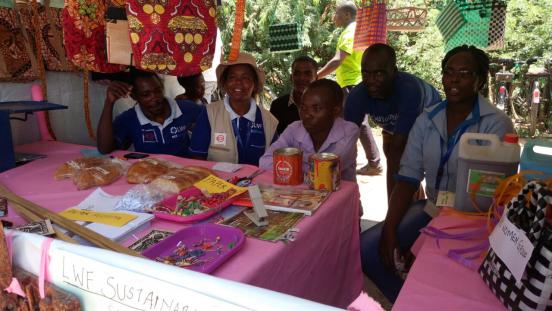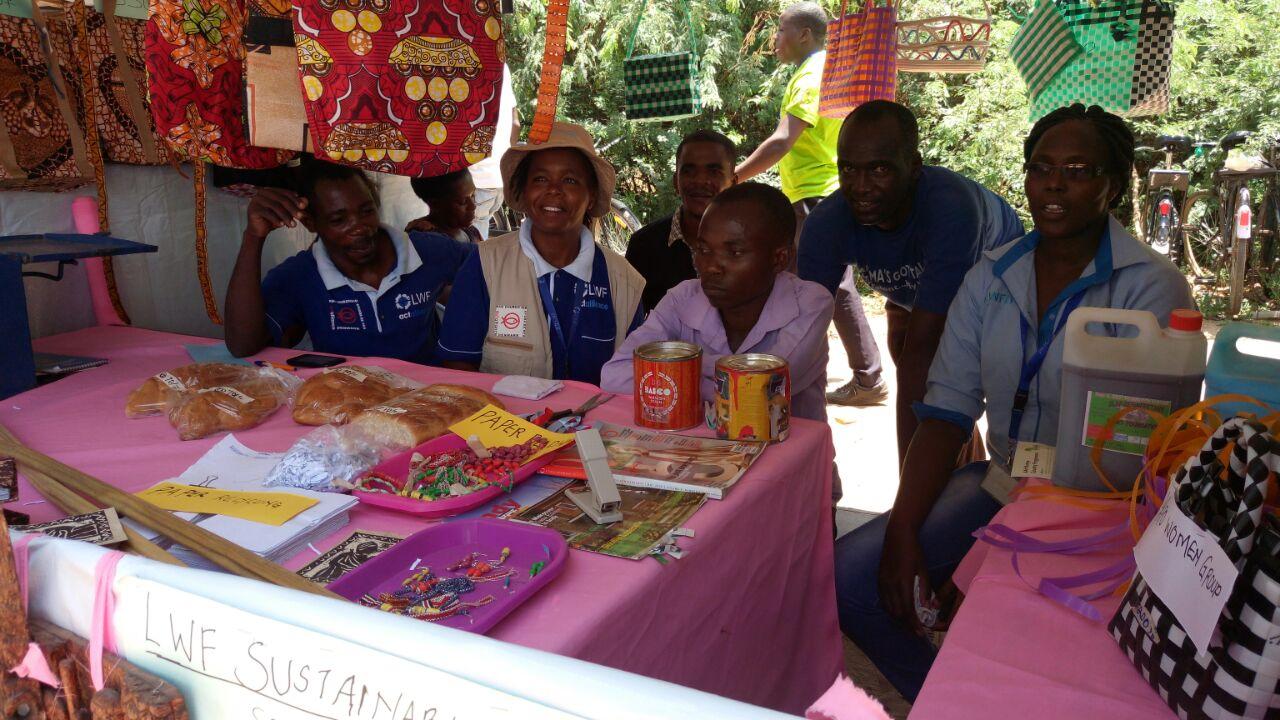Vaccination exercise
Sustainable Livelihood sector supports the improvement of animal Health of host community through training on disease surveillance and treatments of livestock and vaccination. In 2014, a total of 250 Community Diseases Committees, Community Animal Health Workers and livestock Marketing Members were trained on aspects of veterinary health care and livestock marketing. More than 120,000 livestock including sheep, goats and cattle were vaccinated and treated in Turkana West Sub County in 2017. The most prevalent animal diseases were Peste des Petites ruminates (PPR), contagious Caprine Plero-Pneumonia (CCPP) and other bacterial diseases.

